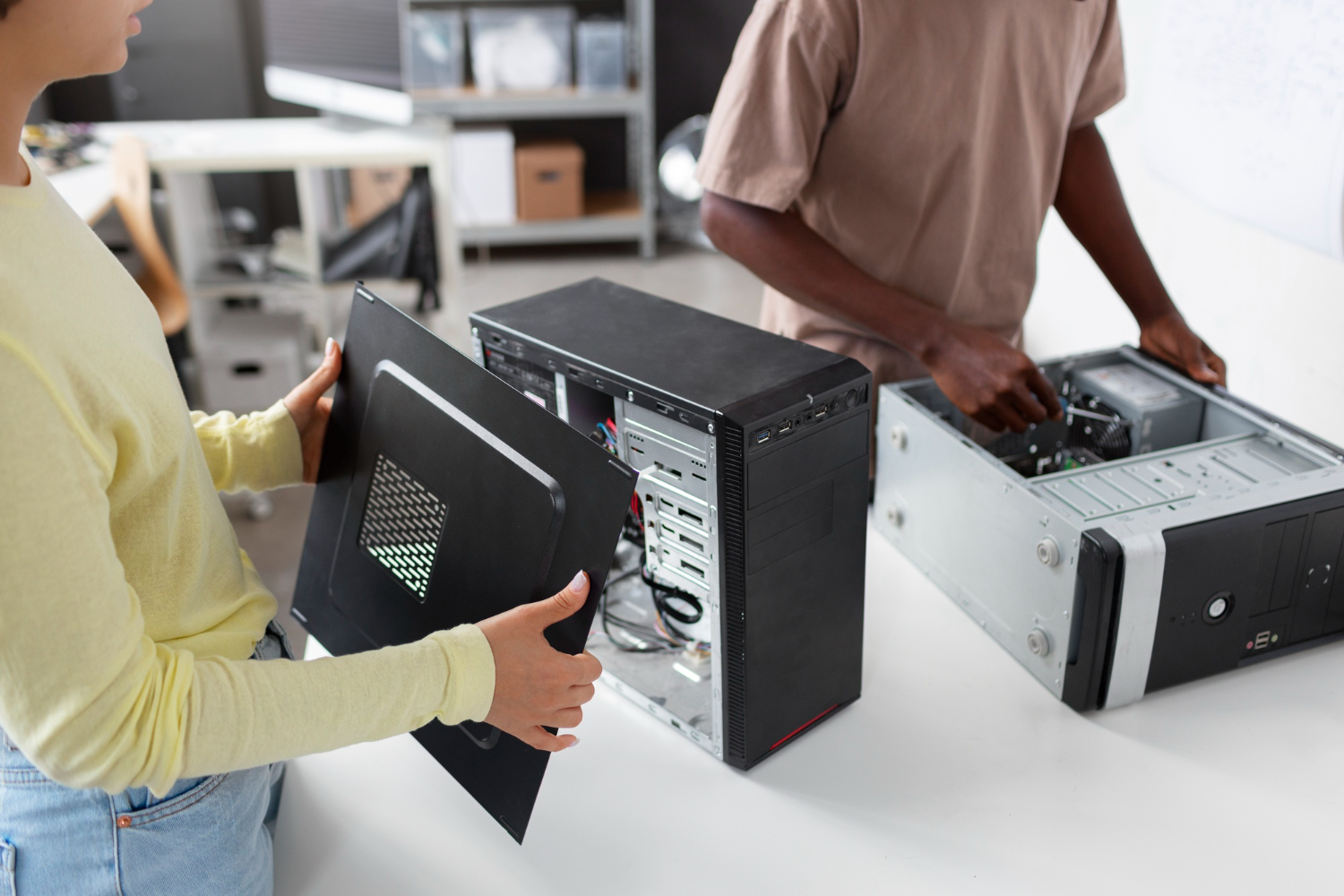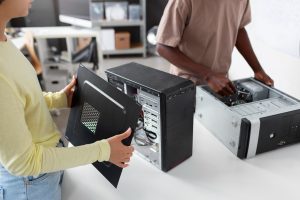Choosing the right IT Solution Provider is an important decision for any reselling company. The success of your organization depends on the quality and reliability of the hardware you provide to your customers. Whether you specialize in monitors, workstations, or business laptops, partnering with a reliable IT Solution Provider like Computapia can significantly impact your business growth and customer satisfaction. With the market filled with many service providers, it is essential to have a clear strategy for choosing the best IT Solution Provider.
In this article, we’ll explore five essential tips to help you choose the perfect IT Solution Provider for your reselling business. From evaluating product quality to assessing logistics and support services, these guidelines will ensure you make an informed decision. At Computapia, we understand the challenges vendors face and are committed to providing world-class hardware solutions that meet your specific needs. By focusing on these key aspects, you can create a strong partnership with an IT Solution Provider because it enhances your business operations and achieves long-term success.
Why do you need an IT Solution Provider as a reseller business?
An IT Solution Provider is a business approach that relies on a company collaborating with an external service provider to manage its IT services. This may include software development, network infrastructure management, data center operations, IT support, cybersecurity, and other activities.
The reseller business uses this service to facilitate business operations, reduce operational costs, and obtain specialized expertise in the field of information technology. It allows organizations to focus on core competencies while taking advantage of the capabilities of external resellers to improve the provision of their services and maintain a competitive advantage.
Understanding your business needs: The first step for the reseller business
Understanding your business needs is the first step to success if you are a reseller in the IT hardware market. The foundation of any successful business is recognizing specific hardware requirements and evaluating the needs to serve your customers more effectively, ultimately leading to increased growth and profitability.
Determine specific hardware requirements
To understand your business needs, first determine the specific hardware requirements of your target customers. This includes a comprehensive analysis of the types of products required and an understanding of the technology trends that influence purchasing decisions.
- Customer Profile Analysis: Start by analyzing your customers’ data. Are they mostly small businesses, large organizations, or individual consumers? Small businesses may need reliable, affordable hardware, such as business laptops and basic workstations, while larger organizations may seek high-performance workstations and specialized monitors for demanding applications such as graphic design or data analysis.
- Industry-Specific Needs: Industries differ in their unique hardware requirements. For example, the healthcare sector needs robust and secure devices, while the education sector prioritizes durable and cost-effective laptops for student use. Understanding these nuances helps in choosing the right products for storage.
- Technology Trends: Keeping up with the latest technology trends is crucial. For example, demand for high-quality monitors and powerful, portable laptops has increased with the advent of remote working. Likewise, developments in artificial intelligence are driving demand for high-end workstations with significant processing power. By staying on top of these trends, sellers can anticipate market needs and adjust their inventory accordingly.
Evaluate Scale and Scalability Needs
After you determine your target hardware requirements, the next step is to evaluate the scale and scalability of your business needs.
- Supplier Relationships: Building strong relationships with reliable suppliers like Computapia is crucial. A good supplier’s strengths are not only limited to providing high quality, but they can also help you manage your inventory effectively by providing insights into popular products and market trends.
- Scalability Planning: Scalability planning includes more steps than just increasing inventory levels. For example, you must ensure that your warehousing, logistics, and customer service can handle larger quantities as your business grows.
- Financial Planning: Financial planning plays an important role in managing size and scalability. This includes setting a budget to increase inventory and investing in the necessary infrastructure. Careful financial planning ensures that you can permanently expand your business without straining resources.
Evaluating Product Range and Quality: Key to Choosing the Best IT Solution Provider
Among the many factors to pay attention to, highlighting the evaluation of the product range and quality as a necessary element. A diverse product catalog and reliable, high-quality hardware greatly enhance customer satisfaction, as well as business growth and profitability. Applying these factors will help resellers make wise decisions when choosing their IT solution provider.
The Importance of a Diverse Product Catalog
A diverse product catalog is essential for distributors. Here’s why a wide product range is important:
- Enhanced Customer Satisfaction: When customers find everything they need in one place, it increases their satisfaction and loyalty. Having a comprehensive product catalog means that customers are more likely to return to the same seller for future purchases, knowing that their needs will be met.
- Increase Sales Opportunities: Different products increase sales opportunities. Sellers can sell additional products, which boosts overall sales. For example, a customer who buys a workstation can get a high-resolution monitor and additional peripherals, thus increasing sales.
Ensuring High-Quality and Reliable Hardware
While product variety is important, the quality and reliability of the hardware is equally important. Here’s why ensuring high-quality products is important to distributors:
- Building Trust and Reputation: Selling high-quality, reliable devices builds trust with customers. When customers receive high-quality products that meet their needs, it enhances the seller’s reputation. A good reputation leads to positive word of mouth, repeat business, and long-term customer relationships.
- Long-Term Cost Savings: Although higher-quality appliances may come at a higher initial cost, they help save in the long run, as reliable products have a longer lifespan and require fewer repairs and replacements. This reduces the total cost of ownership for customers, making them more likely to invest in higher-quality options from the same vendor in the future.
Make the Right Decision
When evaluating potential IT solution providers, resellers should prioritize those who offer a diverse, high-quality product portfolio. Here are some steps to guide this evaluation:
- Research and Reviews: Look for providers that have positive reviews from their customers that highlight the quality of their products.
- Product Testing and Demos: Whenever possible, request product samples or demos so you can test the device first-hand for quality and suitability for your customers.
- Partnership Potential: Consider the possibility of a long-term partnership with a provider that offers good products, ongoing support, updates, and collaboration opportunities in marketing and business development.
Assessing Logistics and Supply Chain Efficiency: A Critical Factor for Distributors’ Businesses
An important factor is the efficiency of the supplier’s logistics and supply chain. Reliable delivery, strong logistics, and effective inventory management capabilities are essential components that can significantly impact a distributor’s business operations and overall success.





